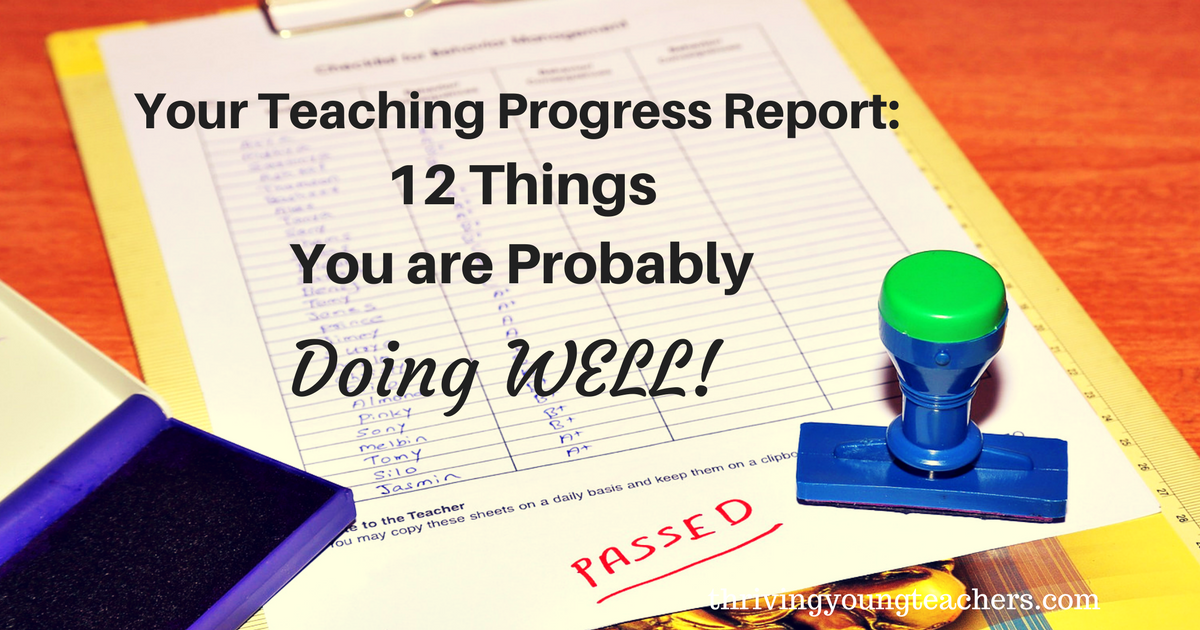 Recently on our Thriving Young Teachers Facebook page we asked a question.
Recently on our Thriving Young Teachers Facebook page we asked a question.
When did you know that you wanted to be a teacher?
Some of us have always known we wanted to teach, others came to it later in life.
And then there was Ashley. Ashley shared the story of how she wanted to be a teacher because her teachers saved her. We were touched by Ashley’s response, and by the power of her story.
It has become a cliché to say that teachers make a difference. But isn’t just a cliché, it is true.
Every day, teachers affect the lives of their students. They nurture students when parents fail to do so and accept students that others do not accept. Teachers often find themselves in the role of nurse, social worker, counselor and life coach. They are regularly blamed for and expected to fix society’s problems and respond by creating a safe haven in a world of poverty, drugs and relentless bullying.
Teachers care for the well-being of their students. They share their lunch with students who have none. They buy supplies for students with their own money. Teachers are encouragers, motivators and role models. They help students to understand and reach their potential, a mission that is far more important than helping students to pass a standardized exam.
In the day to day work of teaching, it is easy to forget the positive and potentially life changing influence you have. It is one of the realities of teaching that you may never know the ways you have helped a student but if you have been teaching for any length of time, chances are you have made a significant impact on someone.
We asked Ashley for permission to share her story because it is a reminder of why we do what we do. Here is Ashley’s story:
When I was in 1st grade we had a career day where we were supposed to dress up for the job we wanted. I dressed up as a teacher but everyone thought I dressed up like a librarian. I cried the whole day because no one got that I wanted to be a teacher.
So, I forgot that dream but remembered it in Middle school when I was tired of all the homework. I vowed that if I ever became a teacher I would never give my students homework. But then, eventually, I kind of forgot it again in lieu of catching boys and maybe traveling the world when I got older.
I remembered it again in high school, and this time it stuck with me. When my world was being shredded apart by my parent’s divorce, a friend’s suicide, sexual abuse, drug use and a whole bunch of a huge mess, it was my TEACHERS, not my friends, or family or parents, that helped pick me back up and helped me walk forward.
My English teachers got me out of my horrible circumstance and gave me something to look forward to in life. They were everything I needed, a pillar, a friend, a mentor, a counselor. I decided that I wanted to be exactly THAT for as many troubled students as I can.
And so, I’ve begun my journey to becoming a teacher. My first year of college is almost over, and I am shaking in anticipation knowing that one day I will enter a classroom and there will be a child who needs me and I will be able to help them the way my teachers helped me.
We want to encourage Ashley, and all of you, that teaching is a profession worth pursuing. There will be a child who needs you, and like Ashley’s teachers, you may be the one to pick them up and help them walk forward in life.
Our best,
Are you interviewing for a teaching position soon? If so, get our FREE guide to help you ACE your interview!





